FORGOTTEN SOLDIERS I: ‘Maggots in my leg’… an amputee-soldier’s 44 months of begging the army for ‘original’ prosthesis
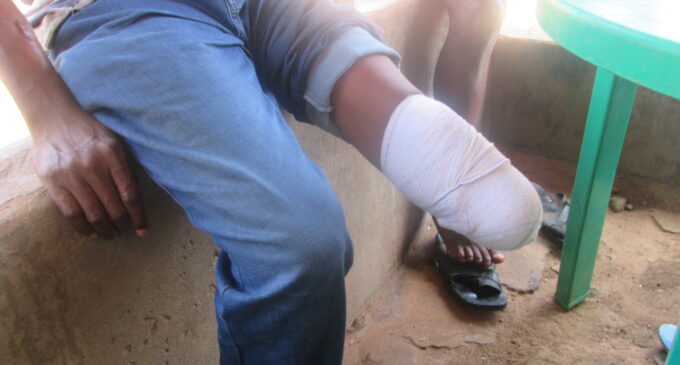
Since 2009, Nigerian soldiers have been going into battle with Boko Haram — with far inferior arms and ammunition — knowing this is the only proof of their love for fatherland. But once they sustain injuries on the battlefield, they soon discover that this love is unreciprocated. ‘Forgotten Soldiers’ is a five-part series exploring the agony of soldiers shattered by Boko Haram’s bullets and mines, and what their pains mean for their loved ones.
Doctors at the Federal Medical Centre (FMC), Gombe state, gave Johnson Nwibani just 12 hours to live — or die. An October 2012 victim of Boko Haram’s all-shattering, early-days rage, Nwibani arrived the hospital half-dead, having suffered gunshot injuries in his left hand, left leg and navel.
His breath was fading, and he had lost so much blood that he was on the cusp of slipping into coma. The doctors tended to his case as an emergency, promptly aiding his breathing with an oxygen mask. The following half-a-day would be crucial. If he didn’t regain consciousness after 12 hours, they said, it meant he had slipped from coma into death.
But like the brave soldier that he is — the one who withstood a midday raid by the insurgents, bloodied and sprawling on the ground yet firing shots to repel his assailants — Nwibani again fought to stave off the clawing hands of death. Exactly on the stroke of 12 hours, he opened his eyes — bloodshot, heavy and bearing the gloom of his utter helplessness. He was alive!
APC more valuable than a soldier’s life

An Armoured Personnel Carrier (APC)… the type a commanding officer didn’t want Nwibani’s blood to stain
“I was on duty at the officers’ quarters. We should have been three at the location, but we were two because we were short of manpower,” Nwibani recalls the 2012 attack.
“Few soldiers were available because many of them had been posted to Borno state, as well as Yobe and Adamawa states. Around that time, the practice was to deploy soldiers inside the town so there weren’t many left at the barracks.”
Back then, the Nigerian military was just beginning to familiarise itself with the threat it was dealing with. Founded in Maiduguri in 2002 by the radical yet peaceful Mohammed Yusuf, Boko Haram clashed with the police in 2009, prompting the state government, with support from Abuja, to unleash a joint military task force on the sect.
Hundreds of Yusuf’s followers were killed in the onslaught, and after Yusuf was himself shot by the police following his capture by soldiers, the reins of the sect fell to the erstwhile second-in-command, Abubakar Shekau. Far more bellicose than Yusuf, bloodthirsty Shekau immediately threatened fire and brimstone.
First, in September 2010, he mobilised followers across the north-east to mastermind a jailbreak for 105 insurgents imprisoned in Bauchi, and then began launching a series of reprisals against military formations. By August 2011 when the United Nations (UN) headquarters in Abuja was bombed, the military, and even the international community, had taken notice of Boko Haram.
By 2012, the army’s priority was to detail soldiers to the north-eastern states worst hit by the insurgency, depleting military might in adjoining states and rendering the barracks vulnerable. It is that vulnerability that insurgents exploited to catch Nwibani unawares.
“At exactly 12pm, Boko Haram brought an attack. They came through the back [of the building], and before we knew it, bullets were flying all over. They were firing from all angles,” he says.
“I tried to take cover, but they were just five metres away from me. Before I knew it, bullets pierced through my leg. The next thing, they shot my hand.
“I returned fire but I had already fallen down; they already damaged my leg so I couldn’t walk. I tried to crawl too, but they already broke my hand.”
By the time reinforcement arrived, the insurgents had escaped. By Nwibani’s account, the commander, whom he was protecting, did not step forward to fight while the attack lasted — the kind of arrant cowardice the military periodically professes to abhor.
“The officer in charge was inside; I thought he would come out to help us when he heard the gunshots, but he didn’t,” he says in annoyance.
“I fainted right there on the spot, and woke up to find myself in a pool of my own blood.”
Soldiers who arrived in an Armoured Personnel Carrier (APC) to provide support were forced to become emergency rescuers. But a shock awaited them.
“They arrived to see blood gushing from my hand and leg, so they rushed to help me and my colleague to the APC.
“But the officer tried to stop them. He told them not to convey us to the hospital yet because our blood would stain the APC; he ordered them to wait for the arrival of one of our Hilux vans.”
In contravention of established military practice of ALWAYS obeying orders, those guys ignored the officer and helped the victims into the APC. Had they listened, Nwibani would have bled to death, surely.
‘Help! Maggots in my leg!!!
It took Nwibani only four days at FMC Gombe to know his crushed leg deserved better. He called his commanding officer to request a pass to seek alternative treatment.
“They were not dressing my wound well,” he says, his face contouring into a frown to hint he was about to make an unpleasant disclosure. “My leg was so poorly and infrequently dressed that maggots started to enter. The sight of maggots in my leg made me inconsolable.”
He opted for the military hospital in Port Harcourt, capital of his native Rivers state, but his commander, whose permission he secured to embark on the trip, had no financial assistance to render on behalf of the army. First obstacle, no commercial bus/car driver was willing to have a smelly leg in his vehicle for a 13-hour trip.
“I called my brother to come take me to the park, and I was sad to see that the drivers were avoiding me, The only one who wanted to help, he billed me N100,000.
“I could understand; I was already a dead man and my wound was smelly; everything was rotten.”
Unable to pay the fee, Nwibani hired a soldier to drive him to Port Harcourt for N30,000 less — without the support of the country he was serving at the time of sustaining the injury.
“I paid the N70,000 on my own, from my salary,” he says, “and I don’t think it‘s fair.”
Finally, amputation
Back at home, his relatives moved him to a “private location” to escape prying eyes, and invited a doctor to clean up the wound and stabilise him, after which he reported at the military hospital.
“The army already told me that wherever I ended up, I must periodically report myself at any military hospital; it’s the only proof I’m still alive,” he says.
Presenting himself at the military hospital, he was told, for the first time, that his leg would be amputated.
“I met the doctor, General Robinson, and after examining me, he messaged my unit, saying the leg was already badly damaged and it would eventually be amputated.
“After two months, the army asked for physical evidence of my condition. I sent photos of the leg, and I got the nod to continue my treatment.”
In May 2014, the month after Boko Haram abducted close to 300 schoolgirls in Chibok — the largest of the sect’s series of under-reported abductions — Nwibani arrived the 44 Nigerian Army reference Hospital in Kaduna, haunted by the grim knowledge that his leg would be severed from the rest of his body.
“I didn’t want them to touch the leg at all; and if they would, I didn’t want the amputation to reach my knee,” he says.
No one to help
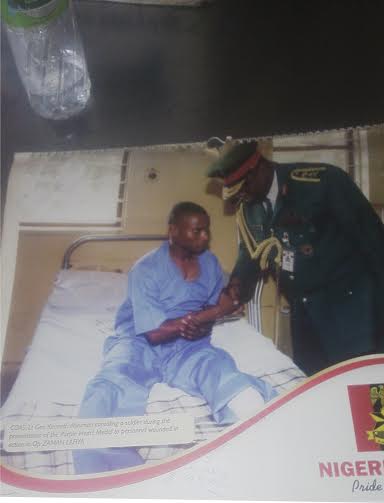
Promise Unfulfilled: Minimah, former chief of army staff, promised Nwibani that all will be well… their photo graced the 2015 calendar of the army
When the doctor told him there was no other solution, he broke into tears. His despair was understandable. At that time, he was just 25. He had lost his father a year before joining the army. He had just one brother (who would later die in January 2016 during one of the numerous incidents of electoral violence in Rivers state). He had no sister, too. Aside his aged mother, there was only one other woman in his life: Joy, his girlfriend of five years who, like everyone else, would ordinarily not want an amputee for a husband.
Without a leg, he knew he could not go on defending his country, as he wanted to. Could he even defend himself in that state? Could he fend for himself — make his own meals, fetch water to bathe, visit the places he would want to? Could life ever remain the same? For so many reasons, Nwibani’s left leg meant so much to him, and losing it was hard to take.
“Before the doctor cut my leg, I asked him a question: ‘You are about to cut my leg, what will the army do to give me an artificial leg?’
“He replied: ‘Are you not a soldier? Army will definitely give you an artificial leg? How will your leg be damaged in the line of duty and you won’t get another one?’
“He sounded so confident, so I told him to go ahead. He didn’t; he told me I won’t be amputated until I had accepted. I told him I had, after assurances that it would be artificially replaced. Then he cut it.”
‘Disappearing’ allowances
It is now more than two years since that amputation; Nwibani is waiting on the army for the prosthesis he was promised.
First, the hospital board met to review the cases of injured soldiers and their survival requirements. He was told he would be flown to India to obtain prosthesis.
“After the meeting of the board, I was told to procure an international passport,” he recalls. “When I complained that I didn’t have the money, they told me I would be reimbursed.”
At the time, his N31,000 monthly allowance (for soldiers fighting insurgency) was abruptly withheld. Of the 12 months of that year, he only received the allowance in the last three months. Throughout 2013 and 2014, he didn’t receive a dime, neither did he in the final three months of 2012. In January and February 2016, the allowance wasn’t paid. Although payment resumed in March and April, there are no guarantees for subsequent months.
In all, between October 2012, when he sustained his injuries, and April 2016, he was only paid his allowance five times, meaning his allowance “disappeared” on 38 out of a total 43 months! That is a total of N1,178,000!
Phantom India trip, fruitless Lagos sojourn, ‘fake’ prosthesis
Still, from his paltry month salary of N49,000, he coughed up N21,000 to obtain the passport in 2015. As of May 2016, Nwibani had gone nowhere near the international wing of any Nigerian airport! The much-vaunted India trip has turned out a tantalising mirage.
Of the waiting game that followed, he would say: “After I got the passport, they still said they would take us to India.
“I was here waiting, waiting, waiting. The next thing I heard was that there was an ‘order from above’ mandating us to be taken to Lagos rather than India.
“When I sought clarifications, they said all that mattered was for me to get an artificial leg. I accepted; you know that in the army, you cannot disobey an order from above.
“We were in Lagos for four months, nothing happened. Then after our return to Kaduna, they brought an artificial leg that gives me pains whenever I wear it. I got fresh wounds whenever I wore it; it hurt so bad that I first had to tie a bandage before wearing it.”
Each time he complained, he was told to “manage it”. The crutches were no better either; they were uncomfortable and hurting his ribs. Hurting crutches, ill-fitting prosthesis… it was like being torn between the devil and the deep blue sea.
Nwibani was still trying to make some sense out of the mess when he was told he had been discharged from the hospital.
“They said I should go home and come back for appointment after six weeks,” he says without holding back his shock.
“I returned after six weeks and re-lodged my complaint but I was told to come back again. So I have been coming and coming, and waiting and waiting.”
Army: No single soldier who doesn’t get his allowance
“For anybody to tell you that he or she has not gotten allowances, I want to know which allowance,” Sani Usman, spokesman of the army, reacts when told that not all injured soldiers were receiving their allowances.
“Is it operational allowance? because every officer or soldier in operation Lafiya Dole is entitled to N1000/day. He or she gets the allowance even before the month runs out. It depends on how we get money, but usually, it is paid in advance.
“Remember also that we are coming from TSA and all of the rest of the things to the point that there was a time that accounts of the Nigerian Army were affected. That is one, because of TSA.”
Although Usman explained that Tukur Buratai, chief of army staff, recently decided that there was so much dishonesty in the payment of troops’ allowances, he did not clarify if the “dishonesty” meant some people were not paid. What he said was that to eliminate this dishonesty, Buratai sanctioned a biometric process requiring all officers and soldiers to re-submit details such as mobile telephone numbers and bank account numbers. He suggested some soldiers made a mess of the process.
“But unfortunately, I can give you the name of a soldier who couldn’t give a normal ten digits account number that belongs to him. And of course, money was accredited to that account, and it bounced back. The processes of recovering it back into the treasury and re-posting it takes a while.
“That is why we have had instances, some complaining that they have not gotten their allowances for three to four months, but I can assure you that I was recently with the army’s chief of account and budgeting, and when the chief of army staff asked him, he said there was no soldier anymore who didn’t have his allowance.
“It is not just that, [there are] those that have duplication, that is, they pay to the first name and not the second. These are the routine administration procedures that we face.”
Army: Prosthesis? It is not that bad
Although Usman acknowledges that “there are some of the soldiers who genuinely have strong cases” for prosthesis, he adds that they are “so impatient to the point that they don’t follow the normal procedures and they end up accusing the system when in the real sense of the word it is not so”.
“Let’s start with the prosthesis, the artificial limb,” he says.
“I know that, after all due clearance, when there is a need for something, we have gone into partnership with some companies. It is not something that will happen overnight. And you know the budget… but that notwithstanding, effort has always been made and I was with the chief of administration recently, he gave me the figure of those who are entitled to this artificial limb.
“It is not that bad the way people think it is. We are open. I know no system is perfect but I can tell you we are doing the best we can.”
A plea for mercy
“That one is not leg,” Nwibani says of the prosthesis, “because, with it, I can’t even walk.”
It is now 44 months since he has been waiting for it — and more than a year since the army put up his face in its 2015 calendar, as an example of how it would care for soldiers harmed by Boko Haram on the battlefield.
Although the costs prostheses are determined on a case-by-case basis, based on a hospital’s assessment of patients’ peculiar needs after series of physical examinations and tests, a physiotherapist says an original prosthesis for an amputated leg should cost between N800,000 and N1.4million.
“I am the same man that the army — when Kenneth Minimah was chief of army staff — put in a calendar for all to see, and promised to take very good care of,” he laments.
“So many people think I now have an artificial leg, but no I don’t. Please help me beg the army; help me beg the federal government. With a good artificial leg, I can still live a meaningful life.”
In the next installment of ‘Forgotten Soldiers’, you will meet a soldier whose intestines were blown open and his limbs chopped off by a bomb blast, and was left for dead at the 7 Division Hospital, Maiduguri, before a combination of sheer luck and rare courage gave him a second chance to live.
Twitter: @fisayosoyombo
Editor’s Note: This project was supported by the International Centre for Investigative Reporting (ICIR)


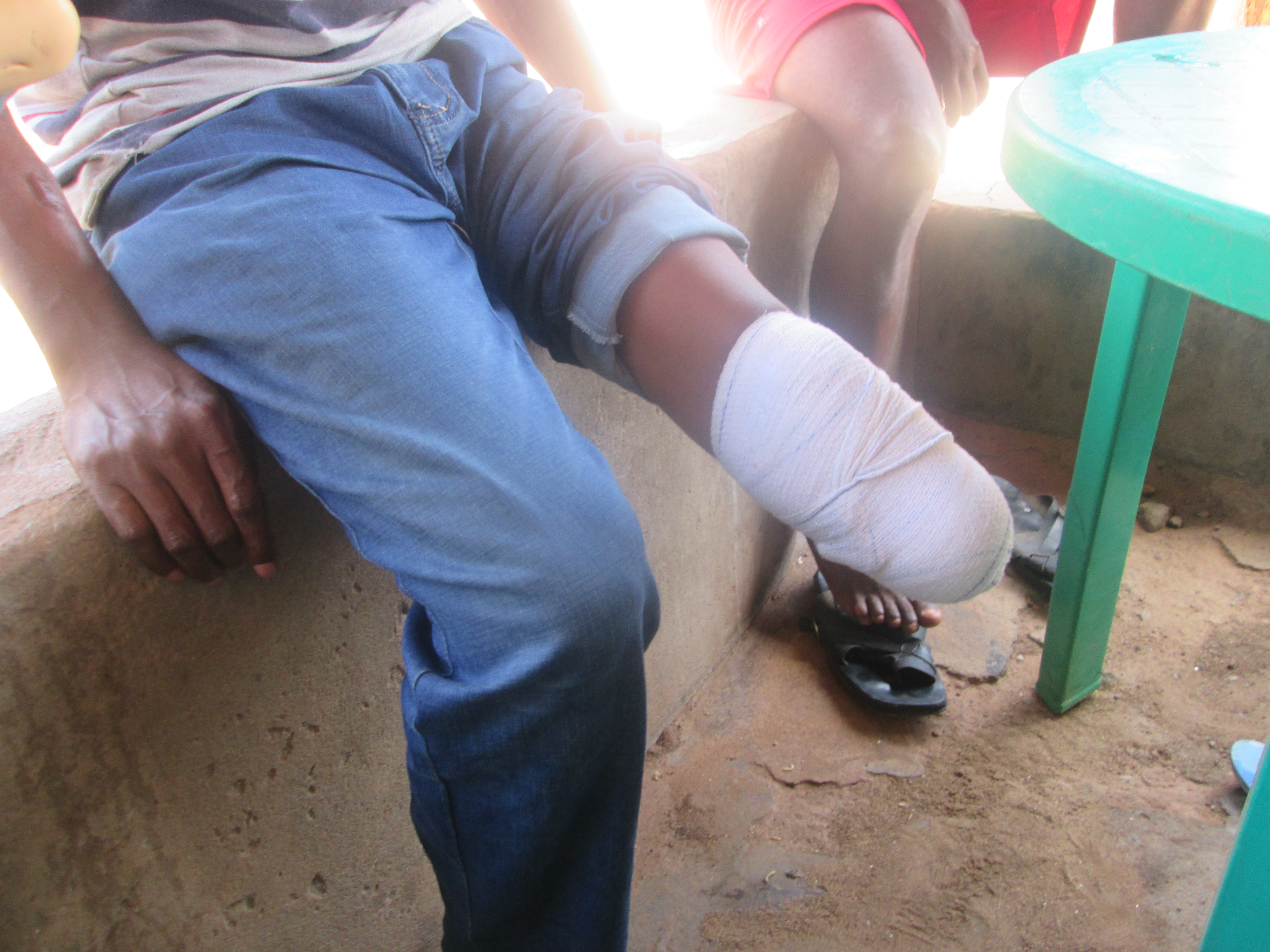
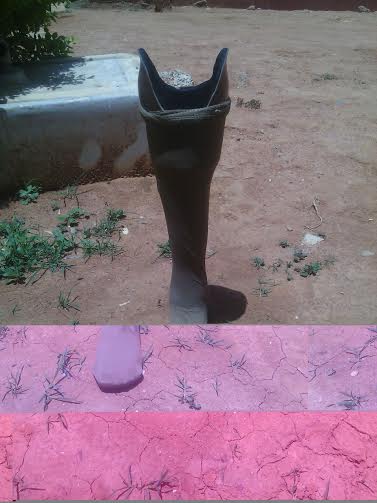
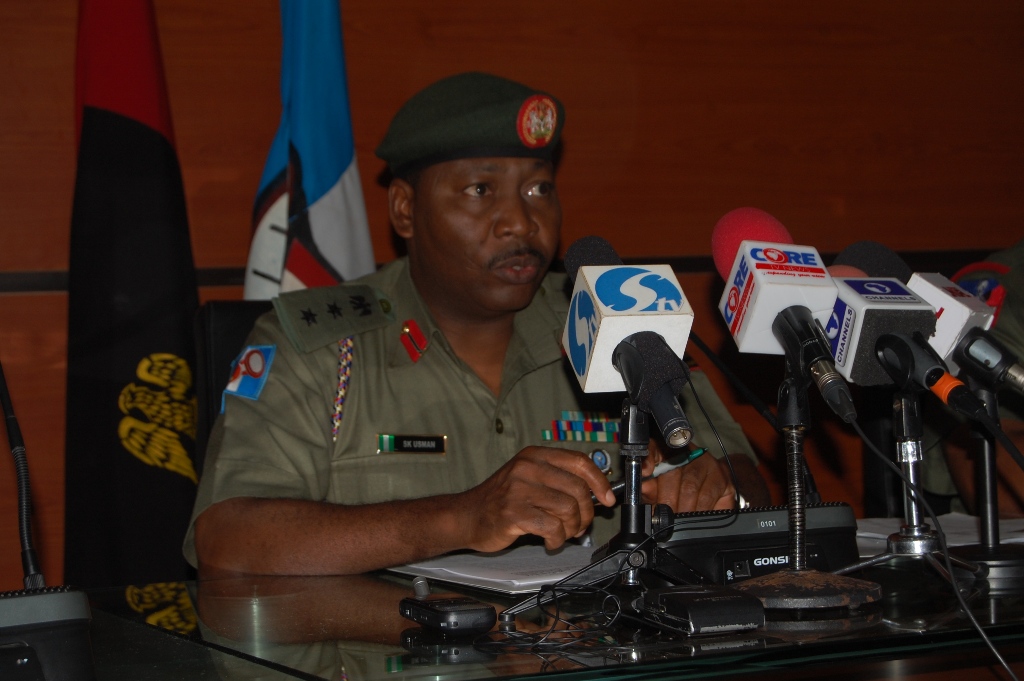
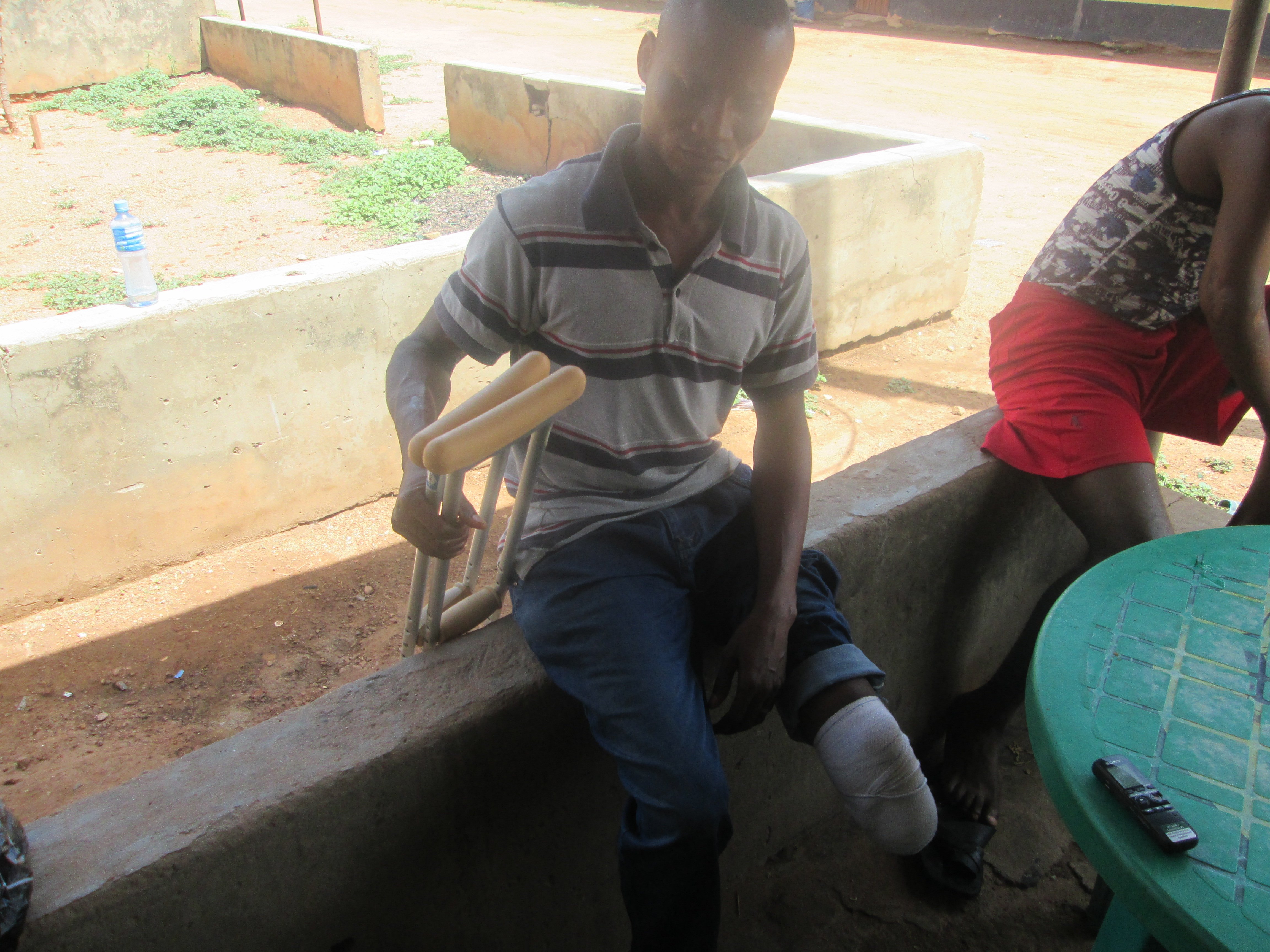
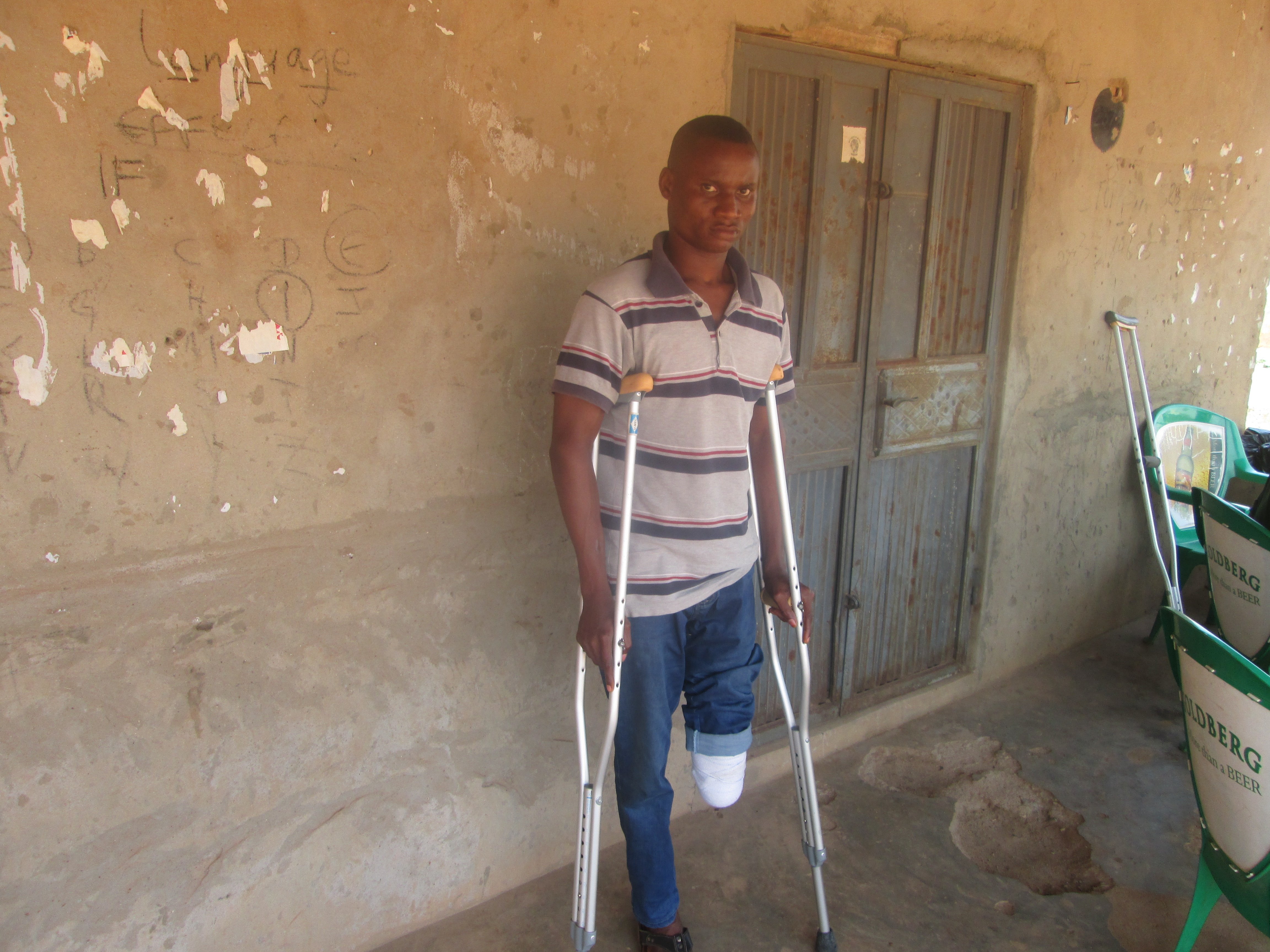















This report is sobering. I got captured by the imaginative spirit of the pen of the writer but further developments in the story saddens me. What is the cost of patriotism? I hope this story gets to the authorities so that the needful can be done.